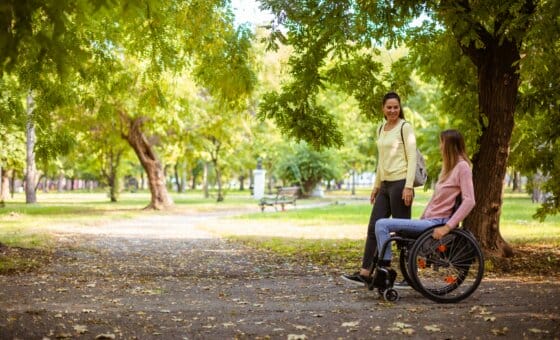How does movement benefit mental health?
Physical activity is great our mental health. When we exercise our bodies release a natural hormone called ‘endorphins’, which make can improve your mood.
Our Burnout Report 2024 also found that 56% of adults said exercising regularly helped them to manage stress, and therefore burnout.

Studies show that movement and physical activity helps our mental health by:
- Managing stress
- Improving our mood by triggering chemical changes in the brain
- Improving sleep
- Improving self-esteem
- Reducing anxiety by making our “fight or flight” response less reactive
- Encourages us to set and achieve goals
- Meeting new people and spending time with others
- Slowing cognitive decline.







